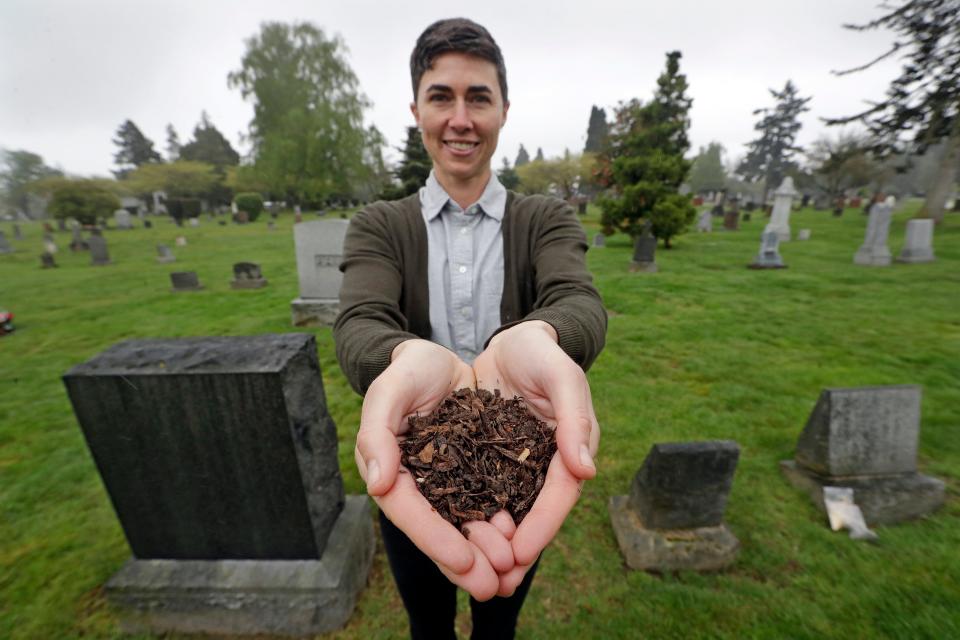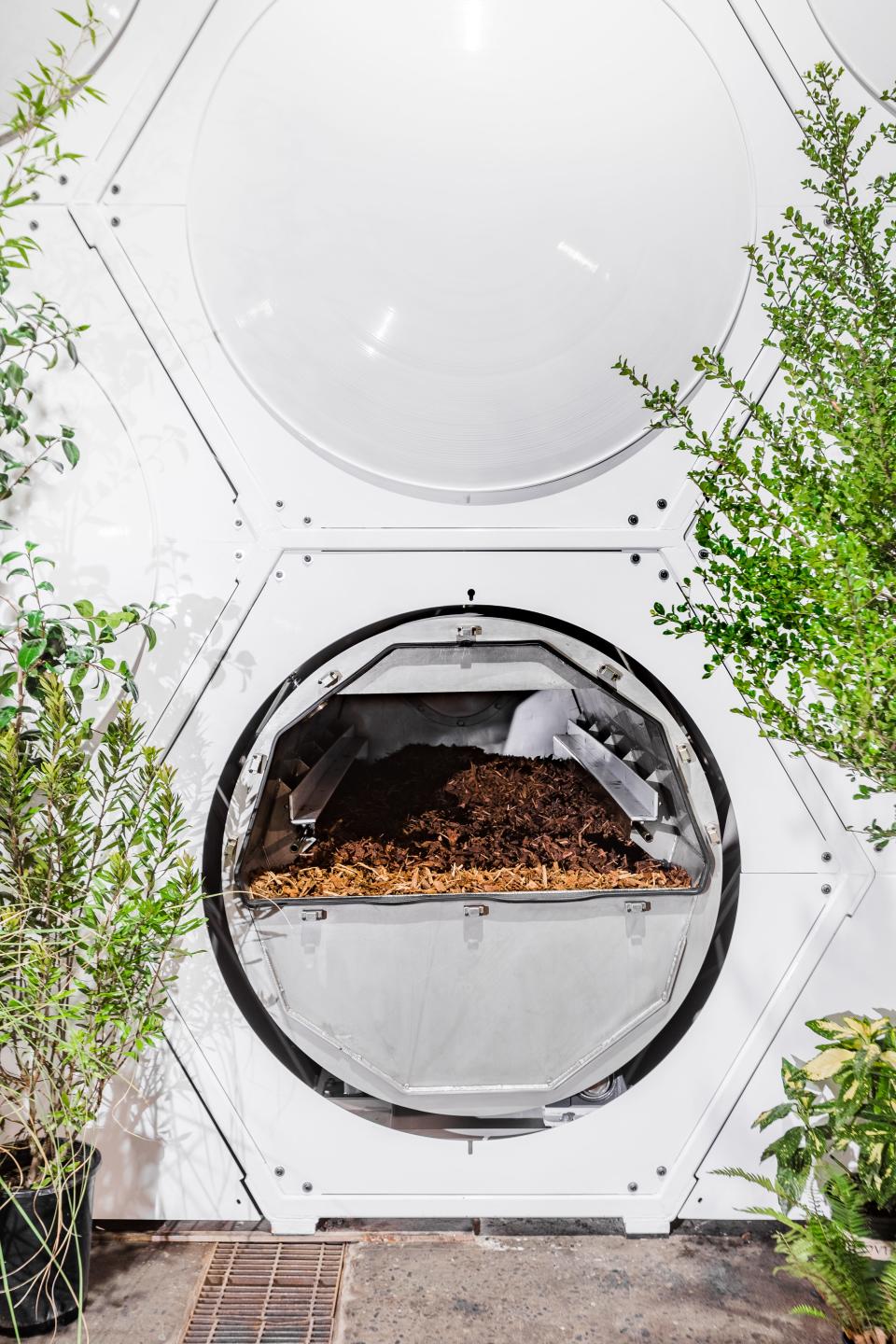Delaware legislators overwhelmingly support new human composting bill. What to know
A bill allowing human composting received near-unanimous approval in the Delaware House last month.
On Jan. 23, House Bill 162 received a passing House vote of 37-2 and now awaits consideration in the Senate, meaning alternatives to burial and cremation services are one step closer to becoming available in Delaware.
What is House Bill 162?

House Bill 162 was introduced by Rep. Sean Lynn, a Democrat in District 31 in Dover, and seeks to add Delaware to the growing list of states offering human composting, also known as natural organic reduction, as a funerary practice.
What is human composting?
Burial or cremation are the common ways human remains are disposed of. Human composting offers an alternative by allowing the human body to decompose in a “gentle, respectful process that accelerates the decomposition of human remains to soil,” according to a bill summary on the Delaware General Assembly website.
The process uses large vessels to hold human remains together with wood chips, straw or other natural materials for about 30 days, during which the human remains and organic materials are mixed with warm air and periodically turned. This results in the body breaking down until only a soil material remains, which can then be given to the deceased’s family.

According to the bill proposal, natural organic reduction is considered to be more eco-friendly than cremation, as the practice does not use formaldehyde or release carbon dioxide and mercury into the atmosphere, and uses 1/8 of the energy of cremation.
HB 162 passed in the House with an amendment stating that there are restrictions on any remains from a person who had or is suspected of having a viral or other health risk that the Delaware Division of Public Health determines may not be eliminated during the human composting process.
Human composting is not new
Lynn, along with the bill’s other sponsors, worked with the framework provided by the other seven states allowing human composting to ensure Delaware’s allowance of natural organic reduction would be as safe and successful as possible.
Part of the team guiding Delaware’s plans for human composting is Haley Morris of Earth Funeral, a licensed natural organic reduction provider in Washington State, the first state to legalize human composting in 2019.
Morris believes that human composting will continue to gain interest across the country as more people reflect on how they can be more sustainable, even beyond the end of their lives.
“We want to make human composting a mainstream, accessible option to anyone who wants it,” she said.
In her effort to bring natural organic reduction to other states, Morris has seen overwhelming bipartisan and grassroots support for legislation surrounding human composting, emphasizing her thought that human composting is really about offering a variety of choices so consumers can have options that fit their needs.
“This doesn’t have to be the option for everyone, it just needs to be available for everyone,” she said. “I just think there’s also this growing interest, and potentially even movement, in this option to return your body to the earth and your final act on Earth doing good for the earth, and I think this resonates for a lot of people.”
Got a tip or a story idea? Contact Krys'tal Griffin at kgriffin@delawareonline.com.
Legislative news: Why Delaware is eying a 27% premium hike on state employees' health insurance
ICYMI: DelDOT's funny road signs will remain on roadways despite federal recommendation to stop
Avoid heartache with these tips: Have you been catfished? How to spot red flags when online dating this Valentine's Day
This article originally appeared on Delaware News Journal: Delaware House passes human composting bill. What to know

